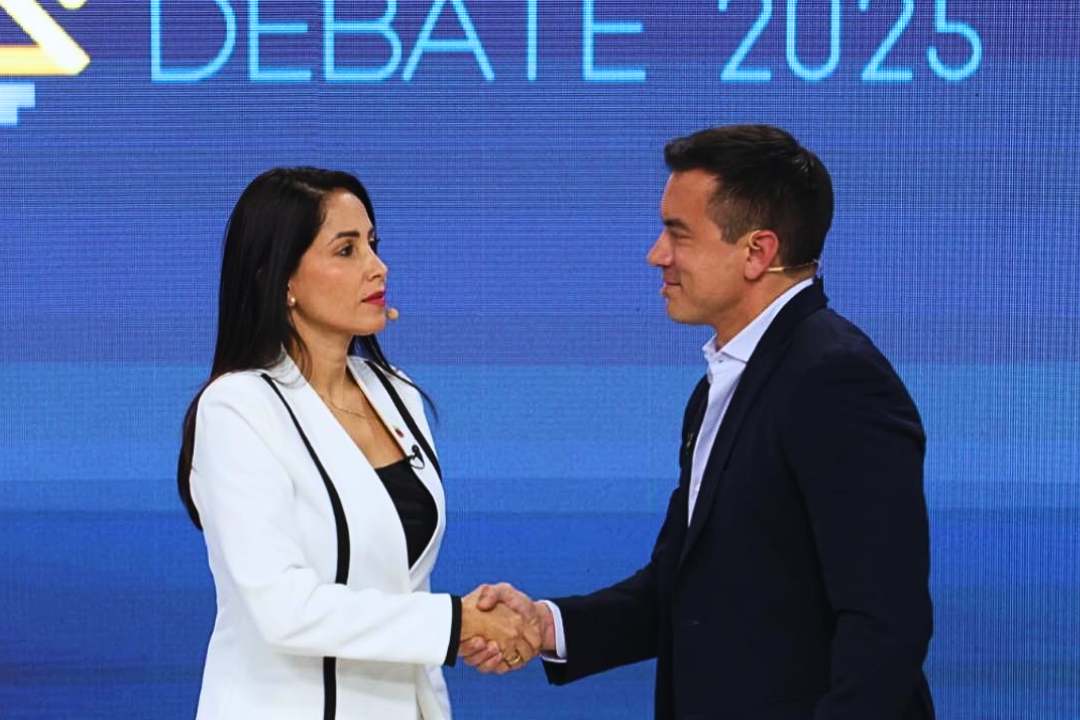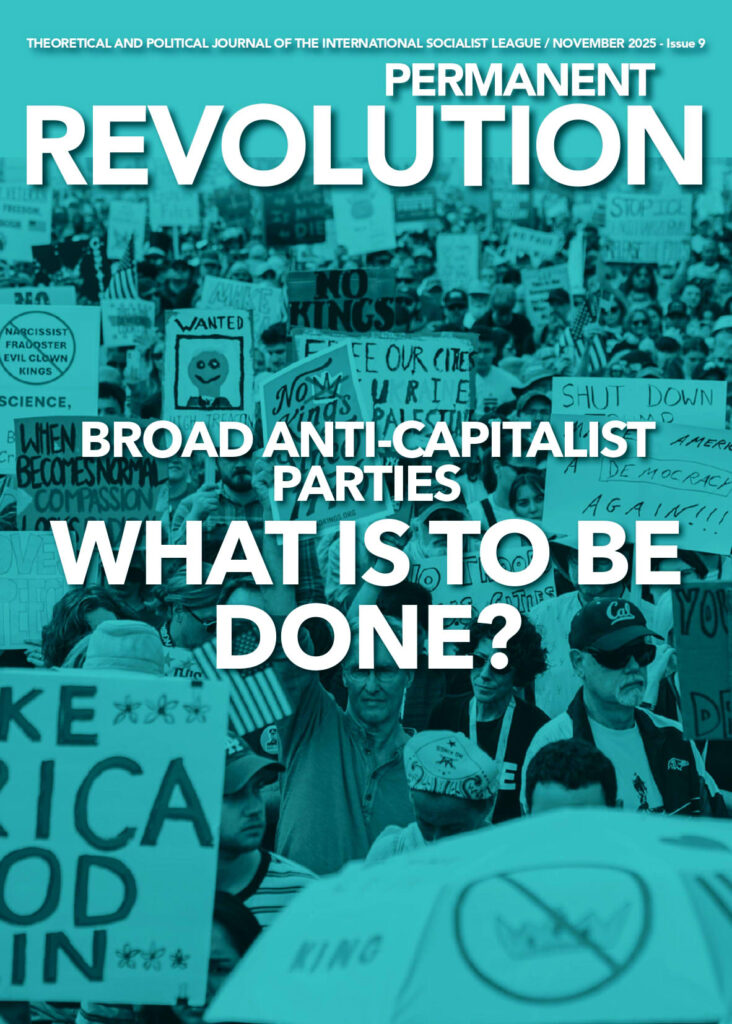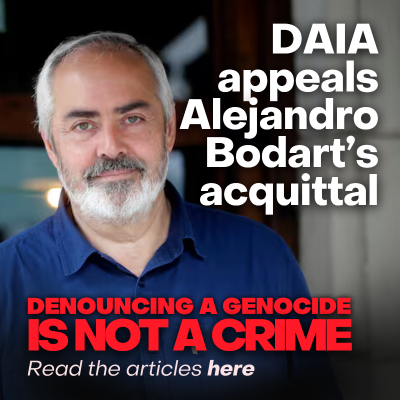A few days before the next elections in our country between Daniel Noboa, current president and Luisa González, Correa’s candidate, we hereunder share the article of the Workers’ Revolutionary Movement (MRT) that has been recently published in their website, Urgent Task. We wish to deepen this necessary debate among the Ecuadorian left in order to contribute to the construction of a true anti-capitalist, socialist and revolutionary alternative.
By Ecuador Workers’ Revolutionary Movement
Near the elections of April 13, 2025, the persistent evils that plague us show all their violence: natural disasters, massacres, contracts with international mercenaries, oil spills, failed attempts to sell the Sacha field, among others. Noboa’s government has not only proved itself unable to confront the problems, but is already part of their causes.
The natural disasters that are actually the consequence of climate change (first, a period of extreme drought and then, a brutal winter) have led to floods, falling bridges, road closures, destruction of crops and the death of at least 25 people.

Another example of apathy is related to the government and the administration of the oil sector, no effective maintenance plans, no adequate organization to face emergencies, no alternative solutions.
Faced with those two emergencies, we painfully realized that there are no prevention measures and that both events exceeded the capacity of Noboa’s government, solely concerned with re-elections at any cost.
The oil spill that took place on March 13 in El Vergel, Quinindé canton, spilled more than 25 thousand gallons of oil, affecting rivers, estuaries and crops. Three major rivers are polluted: Viche, Blanc and Esmeraldas. The people affected are the only ones who, with few resources, try to save what they can.
In the midst of this situation, the government is trying to sell the Sacha oil field. Noboa, the president and candidate whose campaign is ongoing without the CNE mentioning anything about it, wanted to hand over the Sacha oil field to two consortiums, one of them Chinese, the other, Canadian. He has done it without any bidding and, as always, not taking into account any emergency measures; that is, bypassing all laws and regulations.
This situation is aggravated by the fact that according to the negotiation, the government would give away more than 80% of the current and future production of this field to the consortiums. This field of production is one of the most important in the country and is the one that produces the best quality oil. It is clear that international interests have been placed above national ones and that the alliance of this oligarchic bourgeoisie with the big transnational mining capital is the agenda.
It must be taken into account that the Sacha field is the one that has increased its production the most, going from 64 thousand to 77 thousand barrels per day, which operation was until now in the hands of Petroecuador, that could continue to manage it both technically and economically. It supplies the two main Ecuadorian refineries, those of Esmeraldas and La Libertad.
This alleged surrender of national assets to the voracity of extractivist companies is done behind the backs of even state agencies themselves and, of course, not acknowledging any experts’ opinions, worse still, ignoring the voice of the Amazonian peoples and the social movements that have vigorously protested.
It has been the active mobilization of the social movements, workers, indigenous, popular sectors, which managed to stop, temporarily, the selling of the Sacha field. This is the best proof that only active, radical and united mobilization can stop the anti-popular policies of this government or any other.
Criminal violence fought exclusively by military means, without any other strategy, is quickly exhausted. Organized crime goes beyond the unknown strategy of an alledged Phoenix Plan. The massacres follow one another. As the residents of the affected neighborhoods in Guayaquil say: it’s a war camp (open, we would add). A massacre of young people, women and children.
The usual response of the big banana companies in Latin America is presented as the best option for Noboa: hiring mercenaries. Noboa negotiates with the international mercenary, Erik Prince, founder of the private military company Blackwater, which has participated in multiple wars, including the one in Iraq. In the war strategies used by both the United States and Russia, private armies have been used to carry out actions outside the law and without being sanctioned.
On the other hand, we are aware of how banana companies have their own security system, made up precisely of armed guards and mercenaries, whose main objective is not to control crime, but to prevent any protest by workers. Thus, Costa Rica, which prides itself on not having a large state armed force, is full of private armies in the hands of the large companies.
This policy of resorting to private armed groups, now Noboa turns it into a state policy, by hiring Prince’s mercenary group. In addition, as we have seen so many times, these types of private armies, placed on the margins of institutionality, quickly become instruments to suppress popular protest; moreover, taking into account the conspiratorial mentality of this government.
All these events are taking place on the eve of the second round of elections, which will pit ADN against the Citizens’ Revolution. The third electoral force, Pachakutik, has seen how the act of resistance that 5.29% of votes expressed is now politically diluted. The dispersion of the indigenous vote, expressed in the most varied positions, prevents a unitary policy that confronts the two bourgeois sectors in dispute. An issue with even greater repercussions for the popular camp, because an important part of popular sectors that escaped polarization are also included in the vote for Pachakutik.
From the workers’ organizations, such as the CEDOCUT, and the indigenous movement, such as the CONAIE, popular demands were put on the political stage, on central issues: insecurity, economy, employment, workers’ rights, rejection of the repression of trade unionists, demand for approval of the Labor Code presented by the FUT.
There was no response from the two candidates. Noboa, turning his back to the law, campaigns, inaugurates projects, floods social media with propaganda, uses it to spread his proposals, all of this with the complicit silence of the CNE. Citizen Revolution is locked in its own conflicts, turning to the right to attract part of the electorate of this field, entangling itself between those who want to continue dollarization and those who do not.
It is clear that there is no good alternative for the popular field. The path of the lesser evil is a trap. It disarms us politically and ideologically, and does not adequately prepare us for the coming struggles. To drag populist progressivism to the left and to mobilization for our rights, we need to have a social and organized force powerful enough to impose actions in defense of the people.
Voting null is the only correct policy for the defense of class independence, both politically and organizationally.





